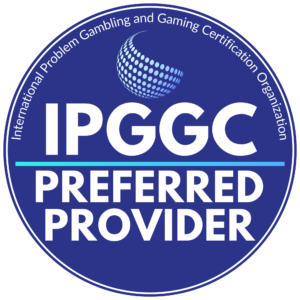
Dates:
Session 1 – September 25-26, 2025
Session 2 – October 23-24, 2025
Sessions 1 & 2 together at a discounted fee – $175
Session 3 – January 8-9, 2026
Session 4 – February 5-6, 2026
Sessions 3 & 4 together at a discounted fee – $175
All 4 Sessions – Bundle and Save! – $300
Times: Thursdays 8am – 5pm – Fridays 8am – 4pm
(1 hour lunch on your own)
Location:
DoubleTree by Hilton Milwaukee/Brookfield
18155 Bluemound Road
Brookfield, WI 53045
Phone: (262) 792-1212
Please refer to the Wisconsin Council on Problem Gambling when making reservations.
Jim Aro Scholarship for Sessions 1-2
Lynn Carlson Scholarship for Sessions 3-4
Presenter:
Andrew J. Schreier, ICS, CSAC, LPC, BACC, ICGC-II
Andrew J. Schreier is an Independent Clinical Supervisor, Clinical Substance Abuse Counselor, Licensed Professional Counselor, Board Approved Clinical Consultant, and International Certified Gambling Counselor – II. Mr. Schreier graduated from Ottawa University with a Master’s Degree in Counseling and Bachelor’s Degree in Psychology and Human Services. He is the Wisconsin Clinical Coordinator for Community Medical Services that provides medicated-assisted treatment for individuals with opioid use disorder. He provides oversight and guidance for all clinical and behavioral health services. Mr. Schreier also works at New Life Resources, Inc. that provides individual counseling/therapy, children and adolescent services, couples/marital counseling, group therapy, and consultation. Experience over the years includes working in a group home, halfway house, residential, medicated-assisted treatment, and outpatient treatment settings. He presents on various topics related to substance use, mental health, gambling, clinical supervision, ethics, and various other topics to statewide and national audiences. Mr. Schreier is the host of “Talking Addiction & Recovery” Podcast.
About the training:
These sessions are designed for those counselors who are or plan to be working with problem gamblers and their families in a variety of clinical settings. We welcome participants from the criminal justice field, the employee assistance field, the faith and pastoral care traditions, educators, the gaming industry, the recovering community and others to our programs. Though the information is designed for counselors to incorporate into their clinical practice we hope all of our participants, no matter who they may be, will learn about the effects of gambling disorder on the individual, family, and community and use the information to help those who fall into their own professional scope of practice. Completion of 30 hours of gambling-specific training education may allow participants to become eligible as a referral source for the WCPG’s 1-800-426-2535 Helpline.
Following completion of Sessions 1 and 2 thirty-hour training and education program, counselors will be ready to assess, screen, and evaluate for gambling problems among their caseloads and among those who present for care. They will be ready to intervene in a crisis, assist in preparation of restitution plans, refer clients for appropriate levels of care, and begin the treatment planning process, etc. Following completion of the “From Gambling to Gambling Disorder – A Clinical Perspective”, counselors will be prepared to work with family, significant others, and special populations. They will be able to present salient patient education topics to clients and families, prepare court reports, assist with complete asset protection plans, and use an array of clinical strategies focusing on impulse control and self-regulation interventions in the treatment of gambling disorders, etc.
The training for clinical professionals is a total of 60 hours of gambling-specific training and education sessions. Participants who successfully complete the entire 60 hours are then encouraged to begin the International Certification process.
Continuing Education Hours:
Continuing Education for 15 hours each session has been applied for with the following:
Association for Addiction Professionals (NAADAC), Employee Assistance Certification Commission (EACC), International Gambling Counselor Certification Board (IGCCB), Wisconsin Association for Marriage and Family Therapy (WAMFT) and the National Association of Social Workers (NASW).


Session 1 OBJECTIVES:
*Session 1 is a prerequisite for Session 2.
Session 2 OBJECTIVES:
*Must provide proof of Session 1 completion.
Session 3 OBJECTIVES:
*Must provide proof of Session 1 and 2 completion.
Session 4 OBJECTIVES:
*Must provide proof of Session 1, 2 and 3 completion.
The cost includes training and training materials. Lunch is on your own.
Privacy Policy. Copyright 2020